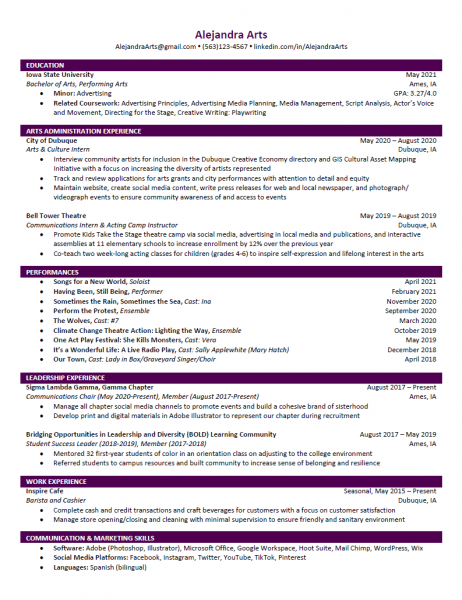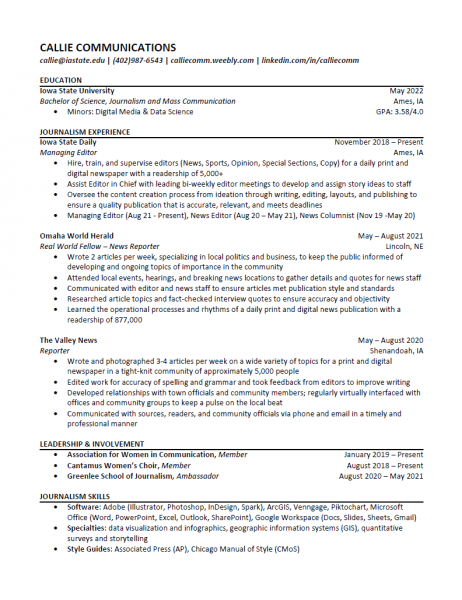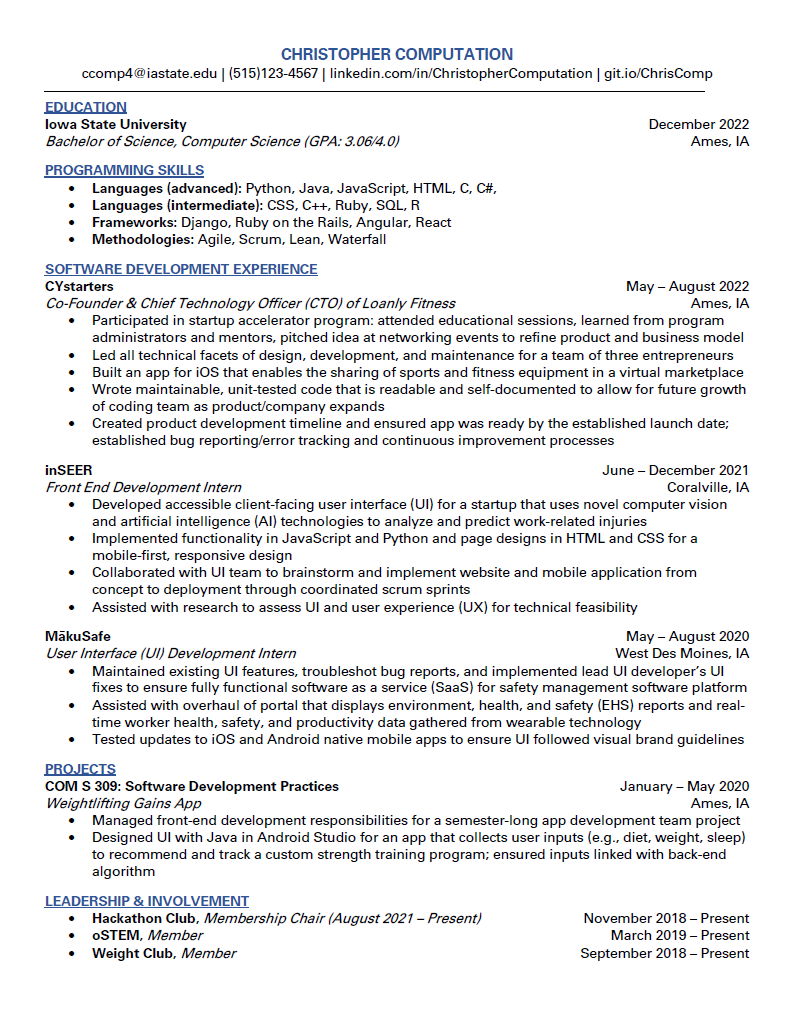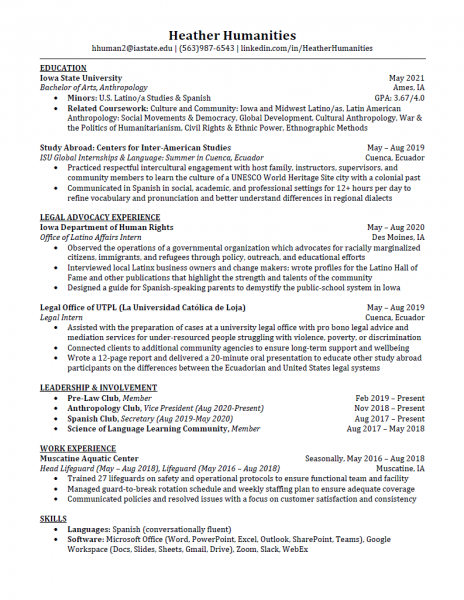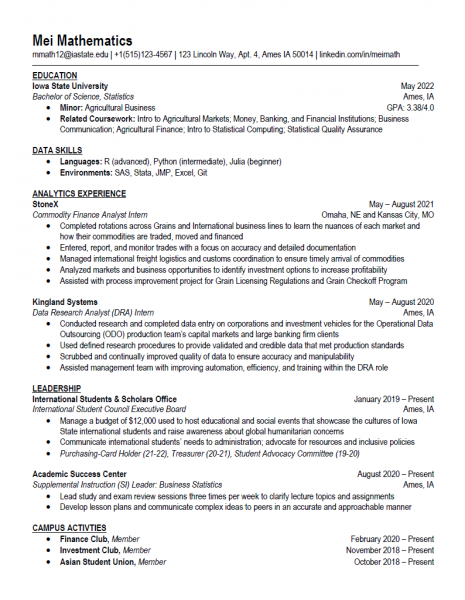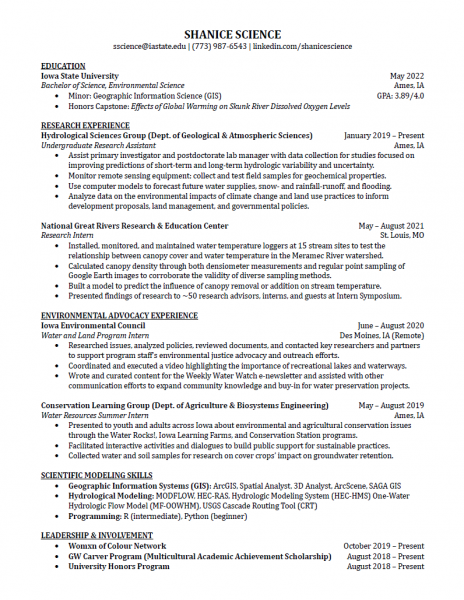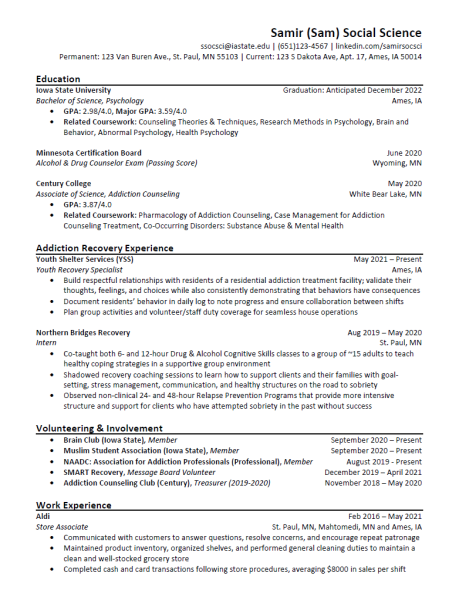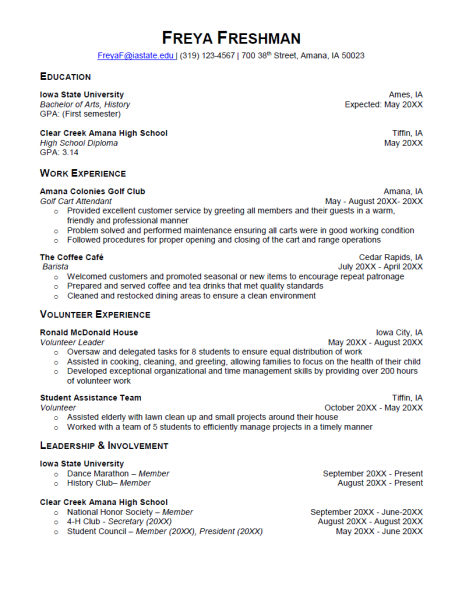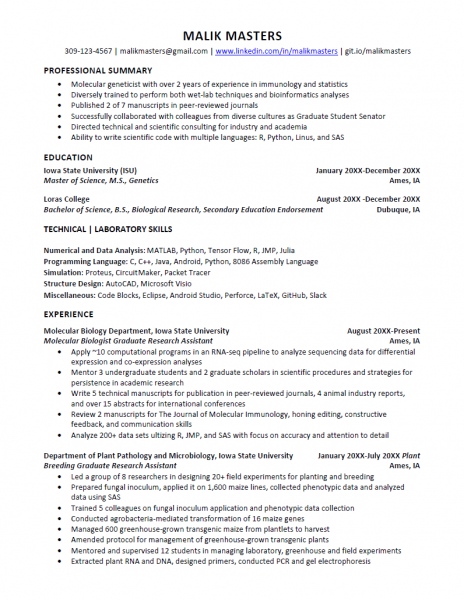Resumes
Your resume is your primary marketing tool that provides employers, graduate schools, scholarship committees, and others with the first impression of your qualifications. Resumes must be detailed, yet concise and easily skimmed; they should offer information on your education and relevant experiences (e.g., work, involvement, research, projects). There is no one definitive resume format – sections and formatting should be customized to your discipline – but use this resume template and the following tips to get started on or refine your resume:
- Begin with a Word or Google Doc document and save as .docx or .pdf
- Avoid templates, columns, tables, text boxes, images, and other elements that can’t be parsed by Applicant Tracking Systems (ATS)
- Fill one page if you are an undergraduate student; two pages are acceptable if you are a graduate student
- Use a modern and clean, size 10-12 font for your text
- Be consistent with your text formatting between entries and sections
- Order experiences in reverse chronological order (most recent at top) within sections; order sections so that the most relevant are at the top of the page
- Balance your text from top to bottom and left to right
- Use bullet points for descriptions of experiences; avoid paragraphs and utilize action verbs to begin each bullet point
- Include 3-5 bullets for highly-related experiences, 2-3 for less-related
- Vary the verb tense of your action verb – current positions = present tense, completed positions = past tense
- Skills-based bullet points = task + transferable skill + result (or scope/impact)
- Customize your resume to the application: rearrange sections, swap out keywords, add/remove content based on relevancy

